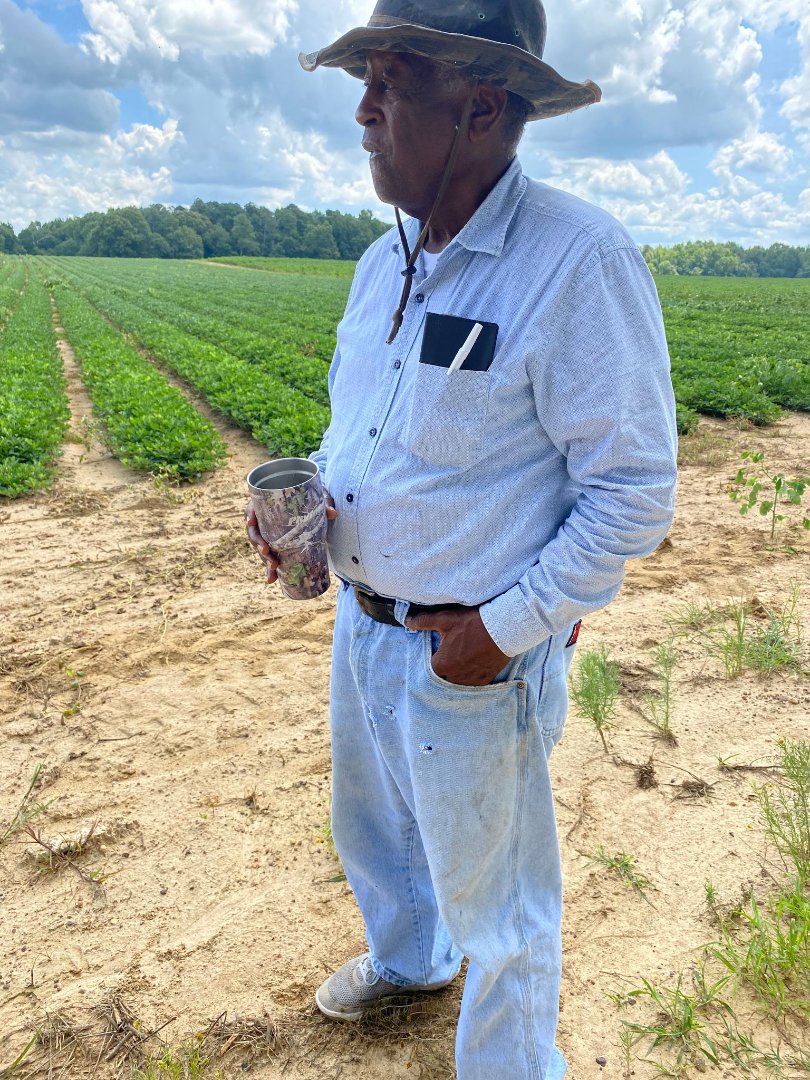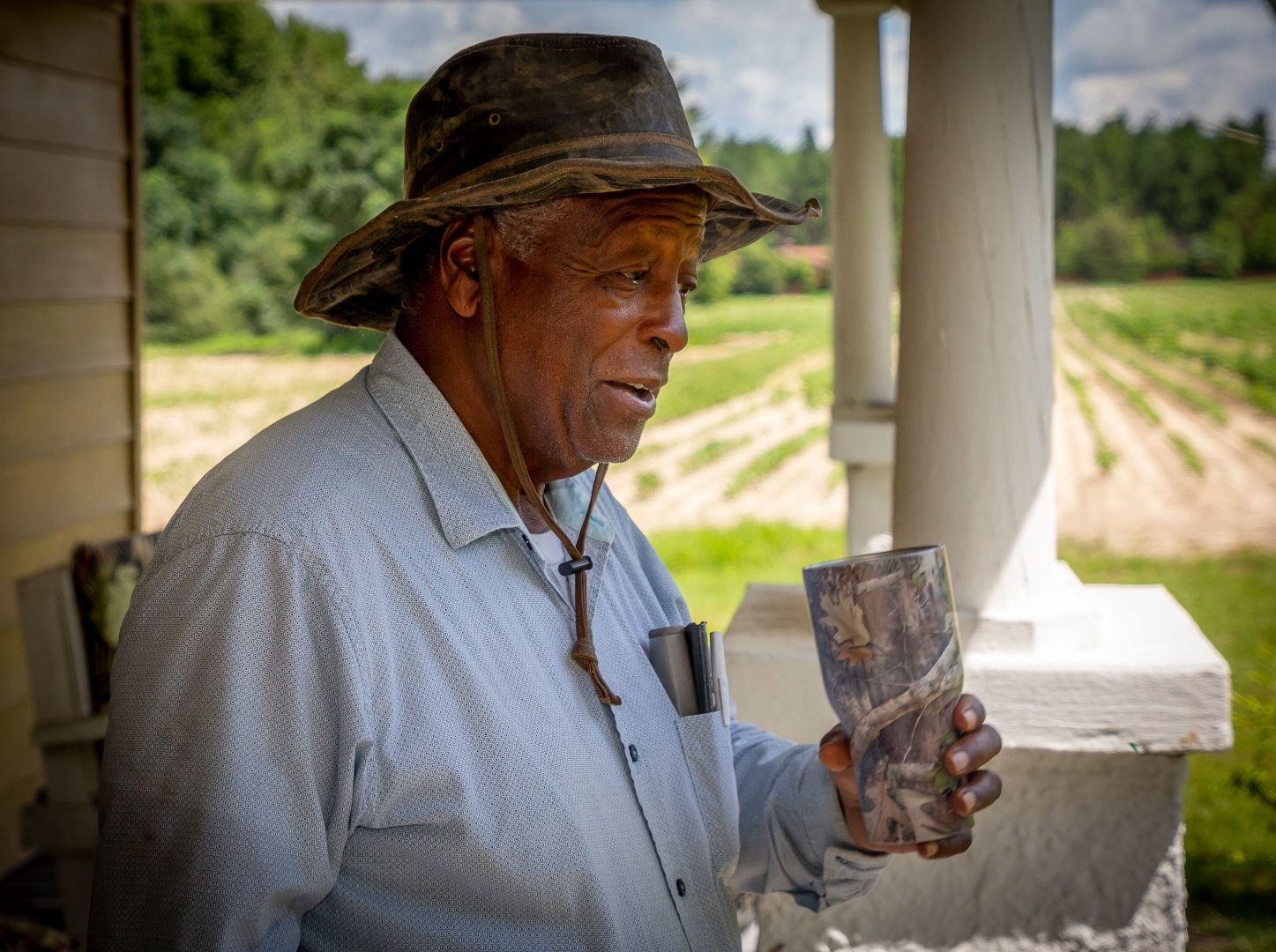Bartha Moore, a retired government employee did not plan to be in his birthplace of Burke County several days out the week.
The 78 -year-old whose primary residence is in Pooler, Georgia, frequently visits his family farm located in the small community of Keysville. Several days out of the week you can find him managing approximately 700 acres of farm land.
“I went away from here about 40 years ago, attended college, and then left to work for the federal government” Moore said. The 1966 Savannah State College alumnus worked for the Veterans Administration in Indiana, Pennsylvania, Florida, and Maryland. During those years, Bartha and his wife Annie Catherine, raised three children.
Initially when he retired, he planned to work alongside his youngest brother, Sylvester but his untimely death in 2006 left him to make a tough decision. “I didn’t really plan to do all this farming, but when my brother passed, I took over. It just kind of came back to me,” he said.
The land is significant to him because his parents acquired it in the 1940s. He also said his brother was the only one of the 10 siblings that stayed and sacrificed his life to operate the farm once all the other siblings left. “Both of those reasons are why I’m still here,” Moore said.
After being away for four decades, Moore said there were many things he had to learn. “My brother was growing corn and soybeans,” Moore said, but the prices on soybeans fell low, so he needed to find a different crop. Stefan Price, Fort Valley State University’s Cooperative Extension agent, suggested that Moore try growing cotton and peanuts.

“I think it was one of the better decisions I’ve made. I’ve gotten better results and a better return on my investment,” Moore said. Moore also said Price helped him determine the correct pesticides and insecticides and would often visit the farm and spend the day assisting with hands-on duties.
In addition to getting help from Stefan Price, Moore enrolled in the U.S. Department of Agriculture Beginning Farmers Program. This program provides classes on budgeting, and conducting yearly evaluations. Moore said he started the 10-year program in 2006 when he began making all the management decisions for the farm.
Furthermore, the farmer also received assistance from the Farm Service Agency (FSA). In the beginning, Moore had challenges with the agency and had to file a complaint. “They changed me over to the Statesboro office where I was able to get help in terms of refinancing my brother’s loan. They helped me get on my feet,” he said. After graduating from the beginning farmers program in 2016, Moore received an operating loan.
“The loan helped me purchase equipment and helps me to farm every year. Without that operating loan, I couldn’t farm,” Moore said. Over the years he has also participated in other programs offered by FSA to include the Agriculture Risk Coverage Program, the Wildfires and Hurricanes Indemnity Program Plus, the Coronavirus Food Assistance Program – Round 2, Price Loss Coverage and the Commodity Loans and Loan Deficiency Program.
“I think we’re getting more people in FSA willing to help small farmers with these programs. If a new farmer is really interested in farming, has some experience farming, or they are willing to get experience, I think FSA will be the way to go. They offer loans with interest rates that are not that high,” he said.
He credits Theresa Windham and Nikki Thomas, employees of the Farm Service Agency, as the two people who believed in him and helped him to keep the farm operating. “They both pushed me along and gave me direction,” he said.

